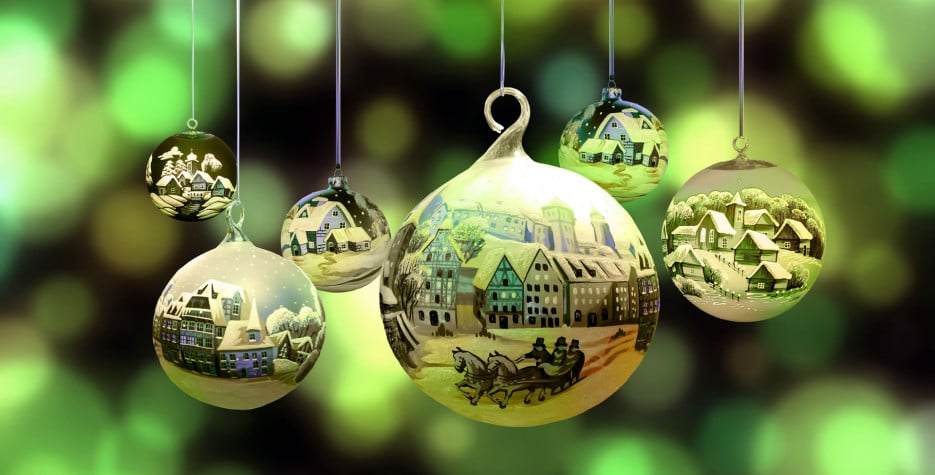Christmas Eve in Slovakia
In Slovak, Christmas Eve literally means "plentiful eve" and this plenty is reflected in the custom of serving twelve different kinds of meatless festive dishes at a Christmas Eve Holy Supper. The twelve dishes symbolise the apostles of Jesus.
The table on which the feast is served will often have hay placed underneath the tablecloth, to signify the straw or hay in the manger where Christ was born. Many Slovak families will place garlic on the table garlic to ward off bad spirits and demons.
The meal will only begin when the first star of the evening is sighted, again signifying the star that guided the magi to Bethlehem.
For Catholic families, fish has become the traditional 'meat' served during Christmas Eve (their scales are said to bring wealth into the house), while Protestant Lutherans will instead have sausage or smoked meats.
Christmas is also the time to eat many pastries and other baked goods, which would have been prepared during December.
When is Christmas Eve?
Christmas Eve is celebrated on December 24th. If Christmas Day falls on a weekend, then this holiday may be observed on a different day.
Countries and regions which officially have Christmas Eve as a public holiday are shown on the right.
Even if it is not a public holiday, be aware that many businesses in Europe will give employees the afternoon or the whole day as a holiday. For instance in Portugal, while Christmas Eve is not a national holiday, most companies give their employees the day or afternoon off to prepare and to be with their families, and many businesses will close earlier than normal.
As Christmas is traditionally a time to spend with families, a lot of people may leave work early to travel home or visit relatives, so this is definitely not a good day to arrange business meetings.
History of Christmas Eve
Christmas Eve marks the culmination of the Advent period before Christmas that started on the fourth Sunday before Christmas Eve. Many churches will mark the end of Advent with midnight church services.
In Latin America, Christmas Eve marks the end of a nine-day period before Christmas, called 'Las Posandas' which represents the none months of labour for the Virgin Mary before she gave birth to Jesus.
Christmas Eve Traditions
Gifts
On the night of Christmas Eve, children around the world will leave food and drink for whoever will come to their house and bring them presents. Who this is, depends on what part of the world you live. It might be Santa Claus or Father Christmas; but in Switzerland, it will be the Christchild who delivers the presents. In Denmark, it's the Christmas elf; in Sweden, it'll be a small man and in Finland, it'll be the Christmas goat!
In Latvia, the custom is that you can open the presents under the Christmas Tree after the Christmas Eve dinner, with a slight twist - before you take your gift, you'll have to recite a small poem.
Candles
A unique tradition of Christmas decoration in Ireland is a large white candle which is placed at the entrance of the house or in a window. This candle is lit by the youngest child on Christmas Eve. This is a symbol to welcome the Holy Family and the candle can only be extinguished by a girl or a woman named Mary.
More Christmas Traditions
- Santa's Sleighride - Christmas Eve Traditions around the World
- Monks, Queens, Lambs and Baubles – the branches of the Christmas Tree
- How Advent Calendars Redefined Advent
Christmas presents are opened in the evening on Christmas Eve in Slovakia.


